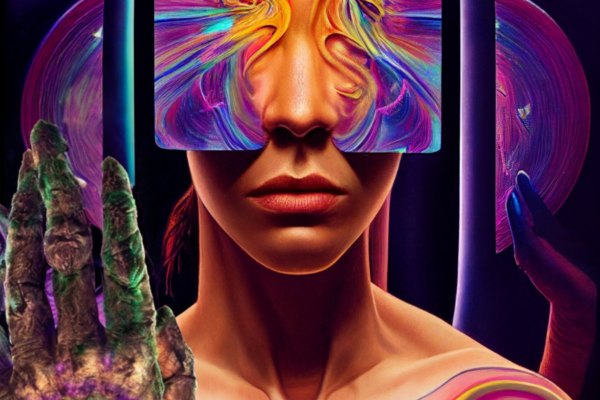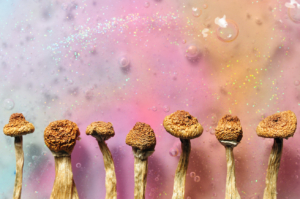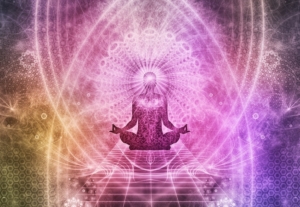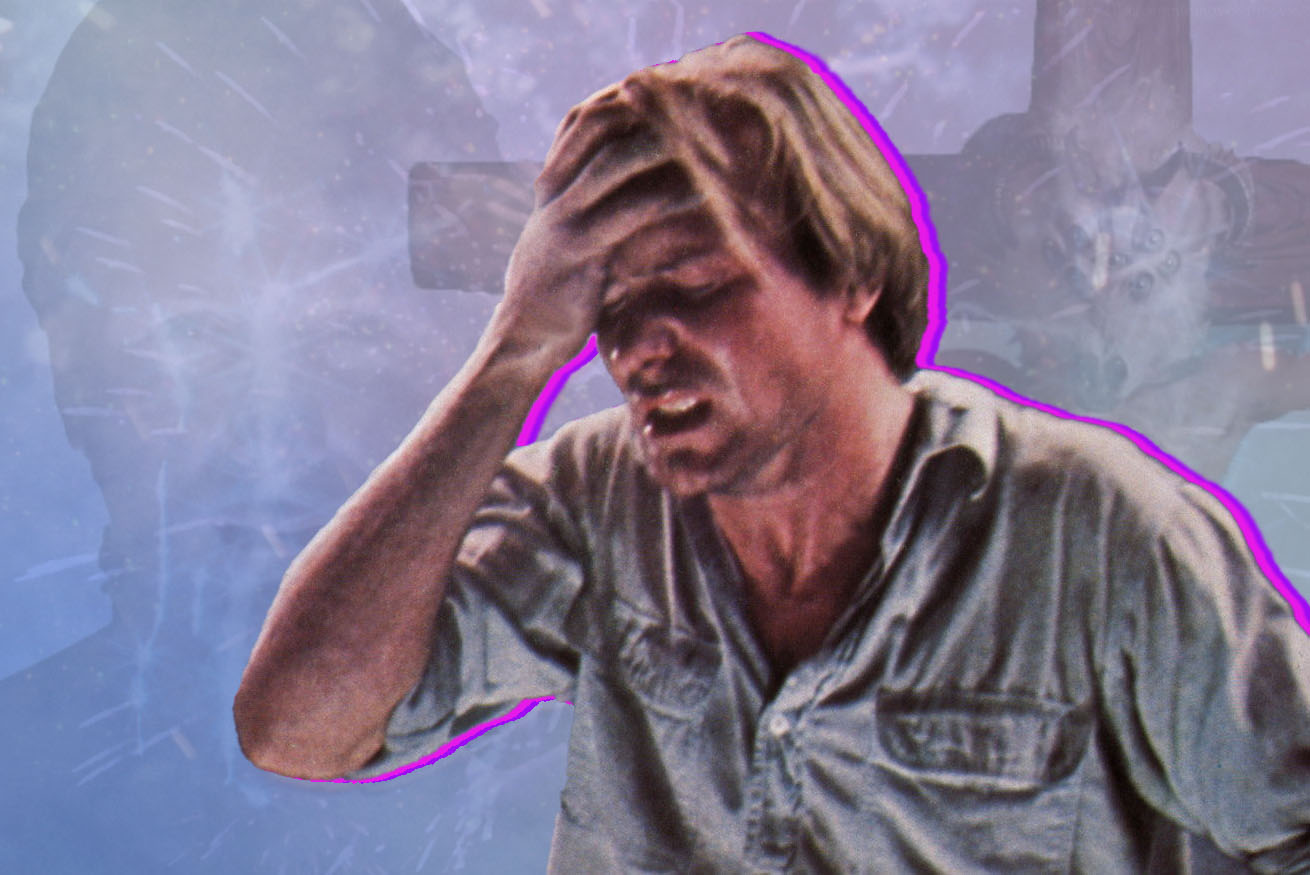
It could be argued that all horror cinema is innately “psychedelic.” The etymology of the word comes from the Greek for “mind manifesting.” And what are the majority of horror films if not manifestations in celluloid of some of the darkest and most disturbing images from the more harrowing reaches of the human psyche? Psyche itself, a term for the “human soul, spirit or mind.”
Ahhh words, often with wobbly and subjective meanings, employed as we desperately attempt to label a thing as a thing. When I was 15 years old, my life was forever changed by a horror movie thing called Altered States. It captured my imagination entirely, leaving an impression perhaps best described as ineffable.
Freshman year, our “gifted class” was relegated to a decommissioned janitor’s closet at the far end of the building. And it was in that janitor’s closet that I first experienced Altered States, as our teacher “Doc” considered it essential viewing. Apart from being transfixed by the album artwork on my Dad’s gatefold LP of the Beach Boys’ Endless Summer album, at that point it was probably the most psychedelic thing I’d ever seen.

Altered States is a 1980 American science fiction/horror film starring William Hurt, Blair Brown and Bob Balaban. It stands to this day as one of the most overtly psychedelic concepts in the genre. Its depiction of psychedelic-assisted exploration of non-ordinary states of consciousness feels just as timely and relevant today as it did upon premiering over forty years ago. Perhaps even more so, with the space that psychedelics are rapidly assuming in the zeitgeist.
Here’s a brief, spoiler-free synopsis of Altered States: Brilliant but troubled scientist presses the limits of what his psyche can tolerate, tempting madness in the name of science and subjecting himself to extremes centered around enduring heroic dose psychedelic states while being immersed in an isolation tank. Horror movie things unfold. And if you’d like to find out exactly what those things are, you can rent this movie on Amazon Prime or other streaming services this weekend.
The critically acclaimed film was based on the novel of the same name by playwright and screenwriter Paddy Chayefsky, who also provided the final screenplay for the film, but who withdrew from active involvement with the project during filming due to conflict with director Ken Russell. It was in part the work conducted by researcher, neuroscientist and psychoanalyst John C. Lilly in the 1960s which entailed his immersion in isolation tanks while under the influence of psychedelic substances such as LSD and ketamine, that helped Chayefsky form the basis for his Jekyl and Hyde-esque screenplay exploration of “man’s search of his true self.”
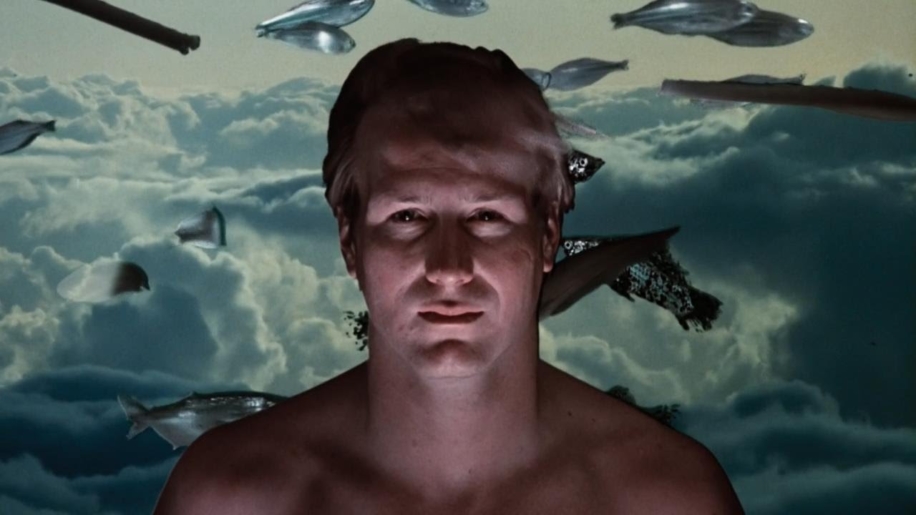
Thanks to pioneering, viscerally disturbing special effects and performances that create atmospheres through characters that are entirely relatable and sincere, it’s hard not to feel after viewing that to some extent you yourself have experienced a taste of the psychedelic consciousness in tandem with Dr. Jessup. And though to be clear, it is certainly sensationalized to function as a piece of commercial entertainment, the treatment afforded the psychedelic experience sections of the film were crafted with a sincerity that is sure to resonate with anyone familiar with the dissolution of one’s standard perception of reality, and the relative comfort it can afford.
As a horror film, Altered States has a “worst-case scenario resulting from experimentation” vision at its core.
In real life, the most skillful utilization of psychedelics requires planning, intention setting, and arranging the correct set and setting. Individuals who endeavor to undertake a psychedelic experience may face tremendous trepidation and uncertainty before making the commitment. That is why we continue to stress the necessity of thorough and assisted pre and post-experiential integration. A consistent trope of the horror genre is the confrontation and vanquishing of fears, be they manifest in the form of serial killers, boogeymen or interdimensional demons. In the psychedelic experience, we are asked to surrender to what transpires, but this ultimately is an act of empowerment, not victimization.
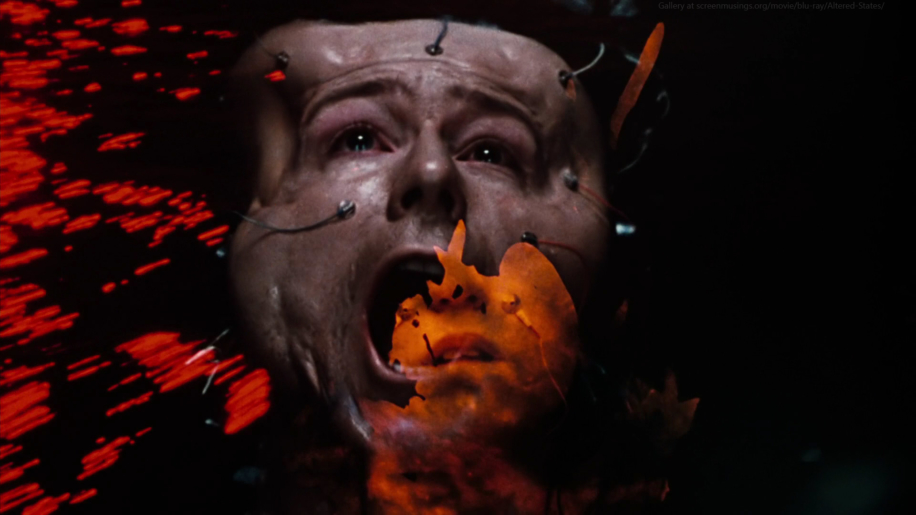
To the idea of empowerment over victimization, when I entered public high school after nine years in parochial school, it felt akin to entering an isolation tank of the mind. Without taking a single dose of LSD, the trip that ensued entailed a barrage of bullying so fierce that were I made to revisit it now, it would surely feel just as terrifying as some of the experiences related to me by friends of their most challenging ayahuasca ceremonies. At 15, I was Dr. Jessup, floating in isolation and at the mercy of the surreal and often vicious world evolving around and through me. The egoic representation of whoever I’d been previously, had to die. Gradually, a more empowered entity would emerge.
With the perspective of decades, I can understand why Doc wanted our nerdy gaggle to see this film at that key time. Immediately after viewing, I recall our excited discussion of concepts ranging from the psychedelic ceremony, to rites of passage, to the afterlife and all potential interdimensional realities between here and whatever “there” may be. I ate it all up and continue to, still the same awe-filled kid seeking to create and abide within non-traditional states of consciousness. Still searching for my true self.
Matthew Dunehoo is the producer, director, and co-host of our flagship series “Spotlight in Focus,” which offers in-depth analysis and candid interviews with luminaries throughout the field of medicinal psychedelics, and is available to watch on ALTRD.TV.
